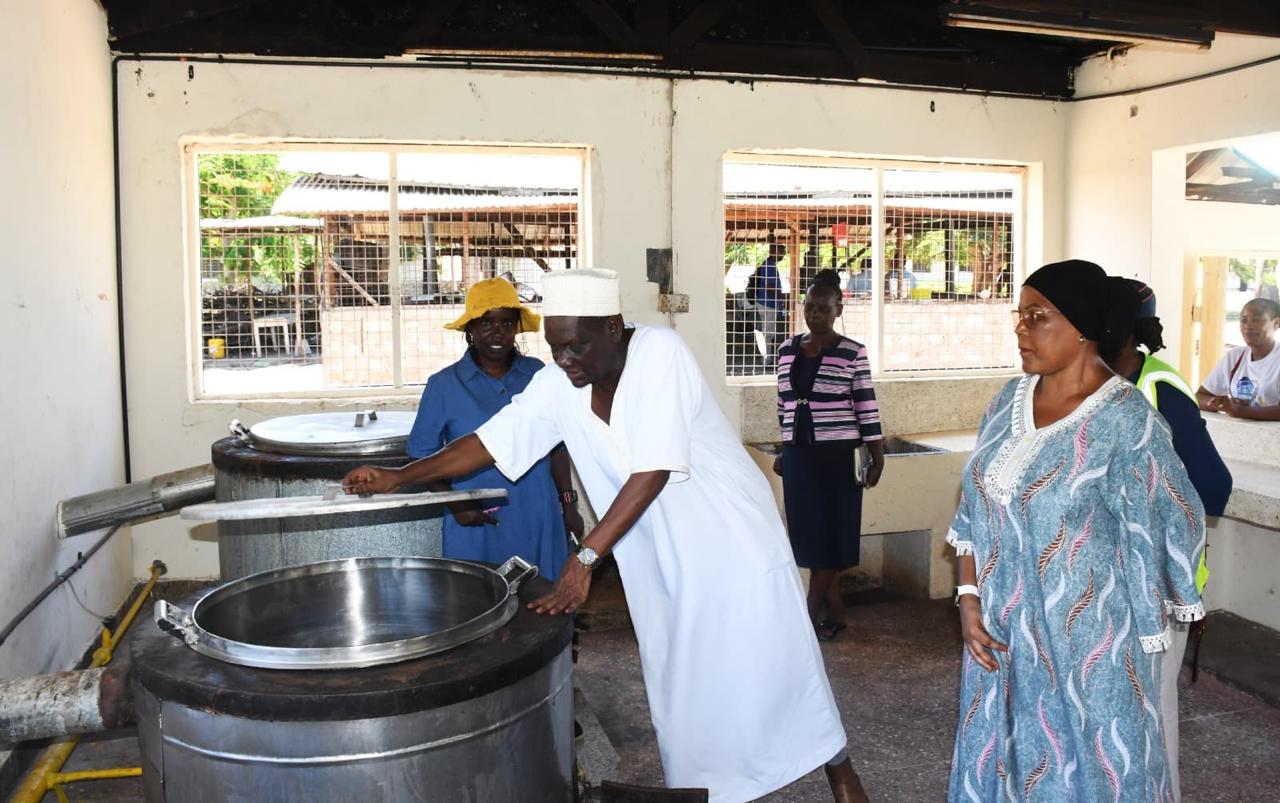

The government has opened the schools' cooking gas programme to the private sector in a move expected to speed-up the plan that targets at least 11,000 boarding schools and institutions.
This follows the completion of the first phase launched by President William Ruto in December, as part of he government's drive towards clean energy.
Petroleum Principal Secretary Mohammed Liban on Wednesday said 20 high schools and three technical institutions have been covered in the first phase.
“The pilot phase has been successful so what we are doing now is going into full implementation. This programme is the initiative of the president to ensure that LPG growth strategy is implemented and to reach those using biomass to get rid of it for better health and environmental safety,” Liban said.
According to the State Department for Petroleum, the LPG (Liquefied Petroleum Gas) Adoption Project in the remaining 10,980 institutions will be developed in partnership with the private sector, before moving to affordable housing projects, police stations, public hospitals, prisons, among other government institutions.
“This is not just about gas. It is about our health, our forests and our future,” the PS said.
KCB and Equity are among institutions that have expressed interest in supporting the projects, according to the State Department for Petroleum.
The government’s LPG agenda seeks to enhance penetration from the current 24 per cent to 70 per cent by 2028.
In 2023, the government exempted cooking gas from Value Added Tax (VAT), the 3.5 per cent Import Declaration Fee (IDF) and the two per cent Railway Development Levy (RDL) to promote its use and reduce reliance on charcoal.
LPG consumption has since increased to 414,861 metric tonnes, latest data by the Energy and Petroleum Regulatory Authority (EPRA), Biannual energy and petroleum statistics report for the financial year 2024-25, shows, up from 360,592 metric tonnes in 2023 and 333,829 in 2022.
To further drive consumption and affordability, the government is mulling cooking gas price controls in the market similar to the monthly prices set on petrol, diesel and kerosene.
The Energy and Petroleum Regulatory Authority (EPRA) is developing a pricing model which will be pegged on components similar to those used in setting wholesale and retail fuel prices, including import costs, global market prices and local currency components.
The government also plans to have LPG imported under an Open Tender System where Oil Marketing Companies and other industry players will be bidding to bring in products, a move that could end monopoly and help manage prices.
Other products being considered for a centrally coordinated bulk procurement system are heavy fuel oil and bitumen.
Heavy Fuel Oil is a tar-like residual fuel from crude oil distillation, often used as marine fuel, while bitumen is primarily used in road construction and waterproofing.
EPRA is awaiting the gazettement of the regulations that will support the centralised importation and common user facilities, currently at the Attorney General for review, before implementation, it said.
According to EPRA’s petroleum and gas director, Edward Kinyua, the government is in talks with private facilities in Mombasa to convert them to common user for handling imports.
“We have told the owners to apply to become common user, they will have a common user tariff approved by ourselves (EPRA) and an agreement, and it will be open access. So the protocols of how the logistics of delivery will work are being worked on,” EPRA’s petroleum and gas director, Edward Kinyua, said during a recent industry forum in Nairobi.









